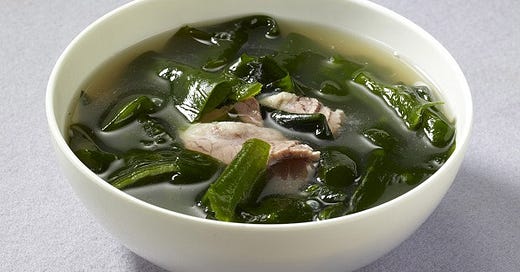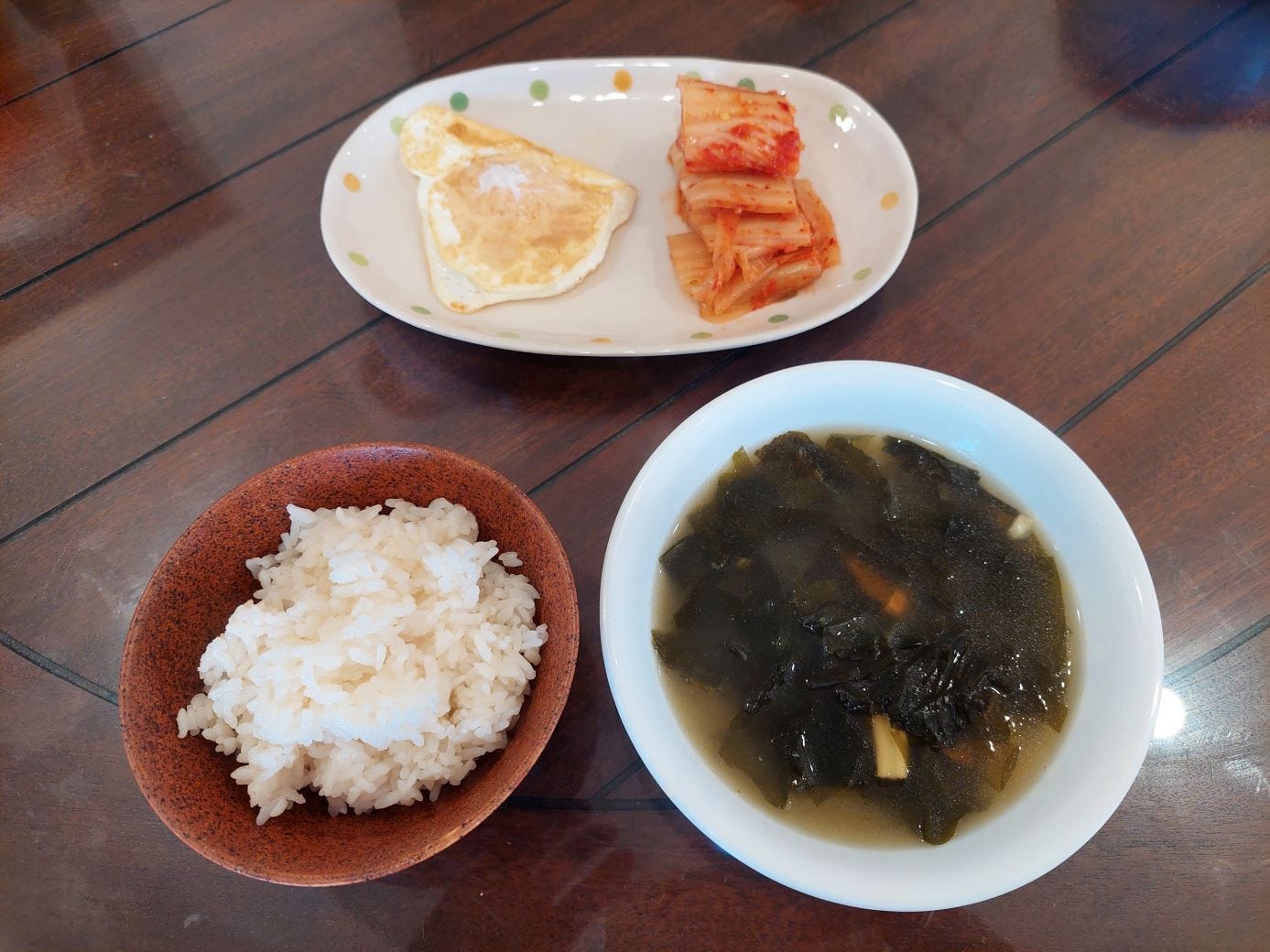Well… whaddaya know… I turned 55 this week. I’ve never been one to make a big deal out of anyone’s birthdays but I’m bringing it up today in order to introduce to you a unique Korean birthday tradition.
I say “tradition” in a singular form because there just aren’t many to talk about because historically Koreans didn’t celebrate their birthdays too much—except for the first birthday called dol (돌) and the 60th birthday called hwan-gahp (환갑). 60th birthday was considered an enormous milestone for longevity in the olden days when the average life expectancy was under 40 years of age. A great big party would be thrown not only for the family and relatives, but for neighbors as well—I clearly remember my grandmother’s hwan-gahp party being the buzz of the town I lived in when I was 10. But the significance of hwan-gahp has all but disappeared today.
So, again historically speaking, an average Korean would get a big birthday party at 1 and another at 60, but not much in-between. But there always is one absolute constant that you simply MUST have on your birthdays. A soup made out of seaweed.

The word “seaweed” is such a misnomer because it is anything but a “weed,” an undesirable plant, a nuisance to healthy vegetation.
The Japanese people have long believed that seaweed (わかめ, wakame) has the properties of “cleansing your blood.” Probably not unrelated, I’m sure you’ve heard of the Japanese Okinawa islanders whose life expectancy is the longest in the world at close to 100. Guess what they regularly consume as food.

Seaweed is called mee-yeok (미역) and you already know, if you’ve been reading my blog, that guhk (국) is soup, so seaweed soup is mee-yeok-guhk (미역국). This is the must-have item on your birthday, if you’re Korean. And it’s not a bad tradition to start even if you’re not (nobody’s perfect, heh heh).
This was my breakfast a few days ago, for someone who almost never eats breakfast. Rice, mee-yeok-guhk, fried egg, and kimchi. Not exactly the breakfast of champions, but it’s a lot healthier than flapjacks slathered in butter and syrup, sausages, ham, and hash browns.
Having this soup has become so synonymous with birthdays for Koreans that whenever this is served at restaurants, or at friend’s house, or anywhere else, someone will invariably ask, “someone’s birthday today?”
According to an old Korean folktale, there once was a man swimming in the ocean when he was sucked into the belly of a giant whale (Jonah? Pinocchio?) who had just given birth to a baby whale. The man noticed that the mother whale’s stomach was full of seaweed that was cleansing the “bad blood” still within her. When the man returned home, he spread the word about what he saw, and mothers who just gave birth started eating seaweed.
Regardless, our ancestors learned that, through centuries of experience, seaweed soup indeed helped mothers recover from the pain of birthing and breastfeeding. To this day, all hospitals in Korea will serve mee-yeok-guhk to mothers, without question. When my kids were born and my wife recovering at the Good Samaritan Hospital in downtown Los Angeles, knowing we’re Koreans, the hospital staff served her seaweed soup. Now, that’s knowing your patients and providing proper and personalized care. But the thing was… my wife hates seaweed soup. For about the 5-year period when she gave birth and breastfed our 3 children, however, she bit the bullet and drank inordinate amounts of it. Things mothers will do…
And of course, the modern science has now discovered that mee-yeok (there’s got to be a better name than “seaweed”) is very rich in antioxidants, calcium, magnesium, all sorts of vitamins that help lower blood pressure and cholesterol and slow aging process. Not to mention its detoxifying effects—remember “cleansing your bloodstream?” Seaweed being plentiful along the Korean coasts and easy storage probably had something to do with it too.

Okay, I think we have now established the fact that mee-yeok is good for mothers. What does that have to do with celebrating birthdays?
It is done to make you never forget what your mother went through to bring you to this world. So, as a symbolic gesture, on the day you were born, you eat/drink this soup to show your appreciation to your mom and to be grateful that you’re here on Earth.







I make a version of seaweed soup, but with considerably more beef than most Korean recipes call for. It's the American love of beef, I guess. (It's also cheaper here.) My family really likes it, including my non-Asian husband.